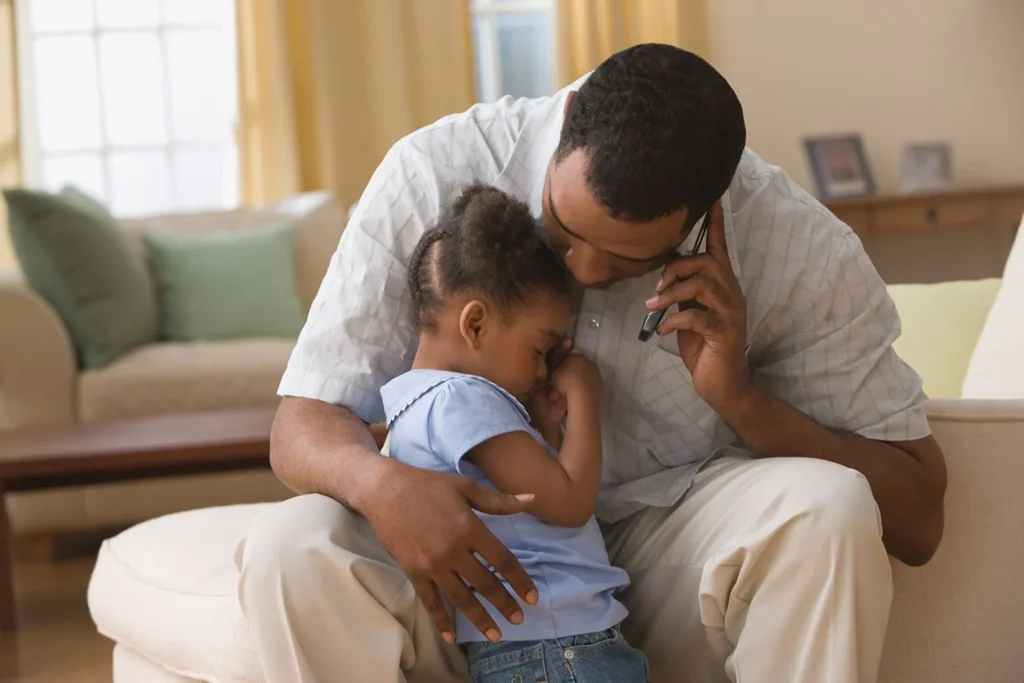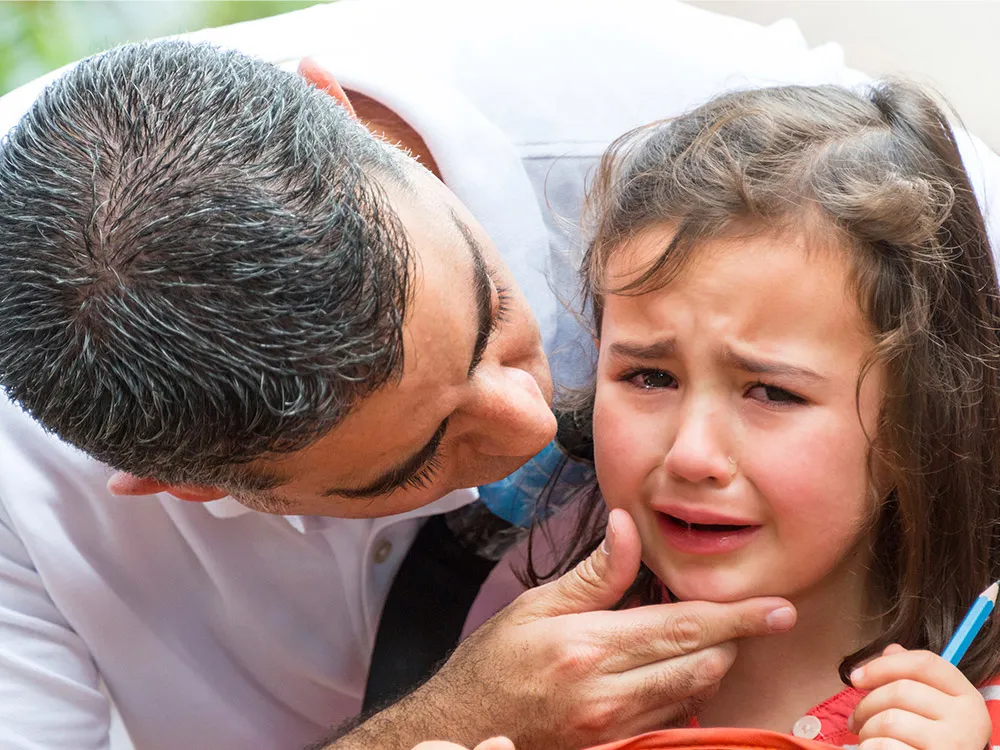Are you curious about knowing the signs your child is scared of you? If yes, keep reading to know the potential signs your child is scared of you and you can build trust with your child.

Parenting is a complex journey filled with ups and downs. While it’s natural for children to experience moments of fear, a consistent pattern of fear towards a parent can indicate an underlying issue.
This post explores signs that suggest your child might be scared and offers insights on fostering a trusting and secure parent-child relationship.
Signs Your Child is Scared of You

Here are potential signs your child is scared of you:
1. Your Child Consistently Avoids Making Eye Contact With You
If your child constantly avoids making eye contact with you, it could be a sign of fear.
Eye contact is a crucial aspect of communication, and reluctance in this area might indicate discomfort or anxiety.
Furthermore, children who are scared may perceive direct eye contact as confrontational or intimidating, leading them to avoid it as a protective mechanism.
2. Your Child Always Have Tense Body Language When Around You
Children who are scared may exhibit tense body language. Furthermore, this can include stiff posture, crossed arms, or physical recoiling. Observing these signs can help identify if your child feels uneasy in your presence.
Tense body language is a non-verbal expression of their emotional state, reflecting a heightened level of stress or anxiety.
3. Your Child is Unusually Silent When Around You
A sudden shift towards silence, especially if your child was previously talkative, may suggest fear. Children often use silence as a protective measure when they feel scared or anxious.
They might fear saying the wrong thing or expressing themselves in a way that could lead to negative consequences, prompting them to withdraw verbally.
4. Your Kid Displays Fearful Expressions When Around You
Expressions of fear, such as widened eyes, a furrowed brow, or a trembling lower lip, can be indicators.
Paying attention to your child’s facial expressions can provide valuable insights into their emotional state.
Fearful expressions may manifest during interactions or in response to specific situations that trigger anxiety.
5. Your Child Apologizes Excessively
If your child apologizes excessively, even for minor issues, it might be a sign of fear.
This behavior suggests a constant worry about displeasing or upsetting you. Children who fear negative consequences may resort to frequent apologies as a way to preemptively seek forgiveness and avoid potential repercussions.
6. Your Kid Exhibits Social Withdrawal
Children who fear their parents may withdraw from social interactions, both at home and in external settings. Fear can lead to a desire to isolate themselves to minimize potential confrontations.
Social withdrawal becomes a coping mechanism to reduce exposure to situations that may trigger fear or anxiety.
7. Your Child Unnecessarily Complies With You
While compliance is generally positive, an extreme and constant need to comply might indicate fear. Children who fear their parents may excessively follow rules to avoid perceived negative consequences.
Overly compliant behavior may reflect an attempt to navigate the parent-child relationship cautiously, prioritizing avoidance of conflict.
8. You Notice Regression in Your Child’s Behavior
Regression, such as reverting to behaviors typical of a younger age (bedwetting, thumb-sucking), may signal distress. Fear can lead to a retreat to earlier developmental stages as a coping mechanism.
These regressive behaviors serve as ways for the child to seek comfort and security during times of heightened emotional vulnerability.
9. Your Child Exhibit Unexplained Emotional Outbursts
Sudden and intense emotional outbursts without an apparent trigger may suggest internalized fear. Children may struggle to express their emotions verbally, resulting in bursts of frustration or anger.
Emotional outbursts become a way for them to release pent-up anxiety or fear that they find challenging to articulate.
10. Your Child is Reluctant to Share Thoughts or Feelings
A child who is scared might be hesitant to open up about their thoughts and feelings. Building a trusting environment where they feel safe to share is crucial for emotional well-being.
Fear may lead to a reluctance to express themselves, as the child may fear judgment, criticism, or negative reactions.
In conclusion, recognizing signs that your child might be scared is pivotal for creating a nurturing and trusting parent-child relationship.
By addressing these signs with empathy, open communication, and a commitment to fostering a safe environment, parents can help alleviate fear and promote emotional well-being.
Building trust, encouraging open dialogue, and providing reassurance are essential components of supporting a child through moments of fear or anxiety.
Related Searches:
